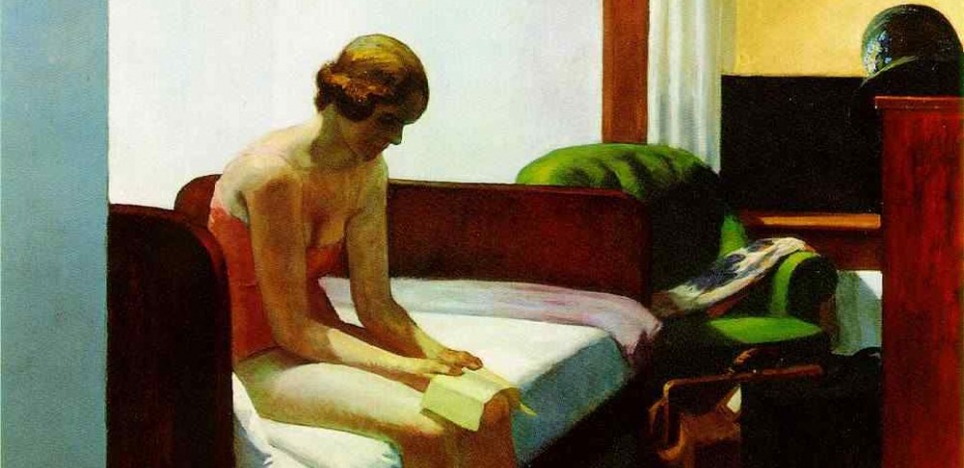We have all experienced sadness and loneliness at one time or another. These two desolations can pass through us as swiftly as a wayward wind or they can roost in our bodies and souls for a long and nightmarish visit. In some cases sadness and loneliness can lead to depression, a much darker and more dreaded place.
Edward Hopper (1882 - 1967) was an American realist painter and printmaker. He summed up his art by stating, "The whole answer is there on the canvas." His paintings accurately depict familiar scenes and situations.
Hopper was very interested in cities and the impact they had upon people. He painted urban environments including public places, apartments, streets, offices, and eateries. Hopper conveys the emotions felt by those who find themselves in these often stark and forbidding milieus.
In Hotel Room (1931), a woman sits on a bed looking down at a piece of paper in her hands. We can only surmise that she has been awaiting its message because it looks like she has just arrived in the room; her suitcases are unopened. Her hunched shoulders reveal the oppressive weight of her sadness and loneliness. We cannot see her gaze, and so we don't know whether the dismay or disappointment she feels have rendered her inert or just caught up in a passing mood.
This painting evokes many feelings in us. Within a few blocks of our home in the city are numerous small hotels, and we can imagine rooms like this one servicing as refuges for lonely and sad people. We remember times when we, too, sat motionless on a bed thinking about something we had just learned. This painting gives us a spiritual workout as we empathize with the woman and hope that she can be released from the darkness she is experiencing.
